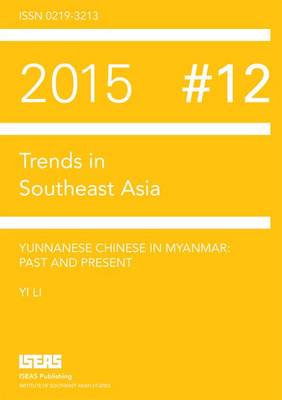Trends in Southeast Asia
1 total work
There is a long history of Chinese activities in Myanmar. The largest wave of Chinese migration to Myanmar (then British Burma) occurred in the nineteenth century; it brought two major regional groups of immigrants: the Hokkien/Cantonese who took the maritime route and the Yunnanese who took the overland route across the border. The Yunnanese community in Mandalay has been well established at least since the mid-eighteenth century, mainly due to cross-border trade. Mandalay remains an important centre for Yunnanese Chinese in northern Myanmar.
After the Second World War, many Chinese entered Myanmar for political, military and economic reasons. They often settled in the northern hills and eventually moved down to lowland towns. Since the late 1980s, some of them have further moved to southern Myanmar, especially Yangon. Yangon Chinatown has been traditionally shared between the Hokkien and the Cantonese Chinese since colonial times. Recent years have seen the arrival and establishment of wealthy and influential Yunnanese, and the community is fast becoming the biggest group of ethnic Chinese in the former capital of Myanmar.
After the Second World War, many Chinese entered Myanmar for political, military and economic reasons. They often settled in the northern hills and eventually moved down to lowland towns. Since the late 1980s, some of them have further moved to southern Myanmar, especially Yangon. Yangon Chinatown has been traditionally shared between the Hokkien and the Cantonese Chinese since colonial times. Recent years have seen the arrival and establishment of wealthy and influential Yunnanese, and the community is fast becoming the biggest group of ethnic Chinese in the former capital of Myanmar.
